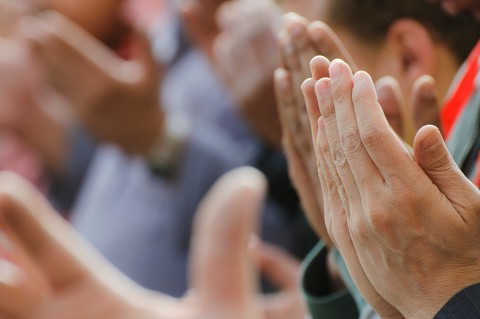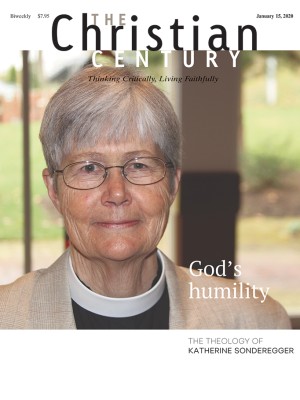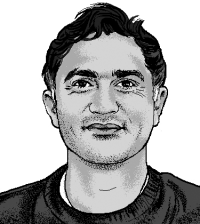My Muslim friend Ali and my Christian commitment to his life of faith
How American hostility toward Muslims has shaped my pastoral vocation

During Sunday worship 13 years ago, my district minister invited me to the front to bless me in my first pastoral calling. I stood with her, looking at all the faces of church members and community friends, side by side, snug in the pews. She asked, “Will you seek to be faithful in prayer, in setting forth the scriptures, and in seeking the good of this congregation?” As I said yes I glanced around the room, my eyes meeting those of my friends—people who weren’t members of the church but had come together to support me, to affirm my calling.
With my yes I made a commitment to this whole gathering, church members and others. They embodied, for an hour, a mestizaje of lives from different traditions, to borrow a concept from mujerista theologians. That congregation was an amalgamated body, a hybrid of people rooted in various communities. For my identity as a minister, the line between the church and the world has been permeable from the beginning, a calling to a congregation of mixed constitution.
Read our latest issue or browse back issues.
Among the gathered body that day was my friend Ali. Over the years he had visited our Mennonite community for Sunday worship and I had joined his Muslim community for Friday prayers. Our communal singing captivated him; their embodied reverence mesmerized me. Once I went with him to Eid al-Fitr, the service at the end of Ramadan where Muslims come together for their salat, their worshipful devotion. That year they gathered in the main arena at the state fairgrounds. We took off our shoes and added them to the endless lines along the walls. With his prayer rug tucked under his arm, Ali walked me to the chairs for non-Muslim guests before he weaved his way through men sitting cross-legged on their mats. I watched him roll out his rug, lift his hands to his ears, drop his arms to his side, then reach his arms to hold each other across his chest. He and the others stood in silence, waiting for the imam to lead the first takbir, the invitation to call upon God.
“Allahu akbar,” the imam’s voice echoed through the auditorium. God is the greatest. I saw 6,000 people bow and kneel, then bow and kneel again, eventually returning to their standing position—a synchronized movement of holy devotion. After the service, before the Eid celebrations began, dozens of people came up to me, each lifting a hand to their chest while sharing words of warmth and welcome. “As salaam alaikum,” they would say, one after another, “thank you for being here.” And I would respond, “Wa alaikumu salaam, unto you peace.”
I started seminary during the early years of what President George W. Bush called the “war on terror.” When Bush spoke from the White House lawn a week after the horrors of September 11, he framed his military incursions abroad in the language of medieval Christendom’s wars against Islam. “This crusade,” he said, “this war on terrorism, is going to take a while.” It has: in Afghanistan, in Iraq, in a shadow war of drones buzzing over villages in Pakistan, Yemen, Somalia, and now Libya—weapons of murder terrorizing people in Muslim-majority countries. This war without end has hovered over my entire pastoral life.
A week after Donald Trump’s inauguration, he issued an executive order that discriminated against Muslims—the first of his travel bans, known as the “Muslim ban.” In response the kids in my Sunday school class wrote love notes to our Muslim neighbors, cards decorated with stickers and sparkly glue. I watched as a child took a bright orange marker in her hand, slowly and carefully writing out letters: “We love you.” The kids asked me to deliver their letters to the local masjid.
When I called the imam to find a time to drop them off, he asked me to join his community for jumu’ah, Friday prayers, so I could hand out the cards to his people. When I arrived, ushers welcomed me and invited me to a place to sit during the prayers, after which the imam would call me forward to address the crowd. A father held the hand of his child as they walked by my seat to their row on the floor in front of me. Once they found their spot, the son scooted to one side of his rug to make room for his toy dinosaur on the other. After the call to prayer, he followed his father’s lead, standing when he stood, bowing when he bowed—although he messed up his timing each time he reached over to adjust the dinosaur’s posture, to make sure it wasn’t out of sync with the rest of the gathering. I thought of my favorite hadith from the Prophet Muhammad, “Verily God is beautiful and loves beauty.”
Last week on Instagram I saw a picture of Ali bowing in prayer alongside his son and father-in-law, the three of them cozy on one rug. My district minister’s question flashed to mind—about my calling to be faithful in prayer and to seek the good of the congregation. The well-being of Ali’s life of faith has been part of my pastoral vocation from the outset. My Christian service to God cannot be separated from a calling to peace, to protest against US war, to struggle for a world where my friend can pray without fear—him and his family and his umma, the whole global Islamic body.
To be faithful to prayer involves yielding to the Spirit who is always reorienting our faith through solidarity with friends, drawing us into God’s salaam.
A version of this article appears in the print edition under the title “Permeable community.”







